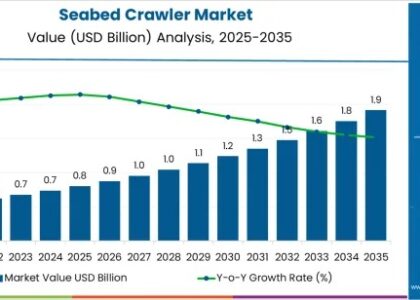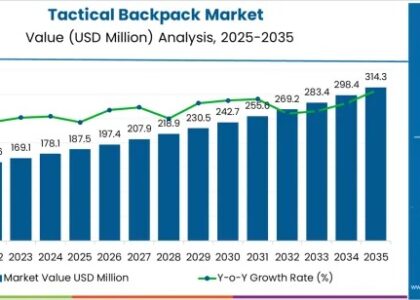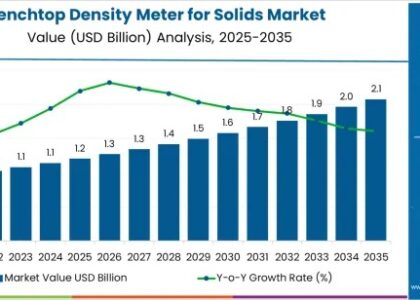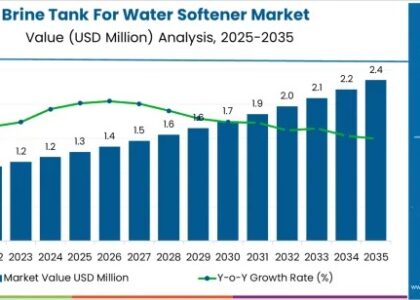The global traffic management system (TMS) market is forecast to advance from USD 29.21 billion in 2025 to USD 66.62 billion by 2035, posting an 11.4% CAGR. Demand is propelled by urbanisation, connected vehicles and stricter greenhouse-gas directives that push authorities to swap static signal plans for adaptive, data-driven control. Cloud-hosted platforms linked to camera incident detection cut intersection delay 18% and crash surrogates 16%, reports a 2024 deep-reinforcement-learning study in Transportation Research Part C. Hardware keeps pace radar- and lidar-based detectors are projected to claim nearly one-third of new-build budgets as Vision Zero safety targets gain traction.
As urbanization intensifies and road networks become increasingly congested, the traffic management system market is emerging as a cornerstone of smarter, safer, and more sustainable mobility. These integrated systems are helping cities around the world manage traffic flow, reduce emissions, and enhance road safety through real-time monitoring, analytics, and automated control.
Driven by the rise of smart cities, connected vehicles, and intelligent infrastructure, traffic management technologies are reshaping how urban environments respond to growing mobility demands.
Get Ahead with Our Report: Request Your Sample Now!
From Congestion Control to Smart Mobility Enablers
Traditionally focused on minimizing congestion and improving travel times, traffic management systems have evolved into sophisticated platforms that combine sensors, cameras, software, and communication networks. These systems analyze real-time data from roads, intersections, and public transport to make informed decisions on signal timing, vehicle routing, and emergency response coordination.
By dynamically adapting to changing traffic conditions, they improve flow efficiency, reduce idling, and support a more responsive and resilient transportation network.
Growing Urban Populations Demand Intelligent Solutions
With urban populations expanding rapidly, cities face mounting pressure to manage limited road space effectively. Traffic jams not only waste time and fuel but also contribute significantly to air pollution and economic losses.
To address these challenges, governments and municipalities are investing in smart traffic control systems that optimize vehicle movement through adaptive signaling, congestion alerts, and integrated traffic control centers. These systems enhance visibility into road conditions and allow for proactive, data-driven traffic regulation.
Integration with Smart City Infrastructure
Traffic management systems are increasingly being integrated with broader smart city frameworks. From energy grids and surveillance networks to public transit and emergency services, these systems form part of a connected ecosystem designed to make cities more livable and efficient.
Real-time traffic data can be shared with navigation apps, digital signage, and connected vehicles, allowing road users to make informed decisions and reducing strain on infrastructure. This level of integration supports seamless mobility experiences and better urban planning.
Exhaustive Market Report: A Complete Study
Technology Advancements Driving Market Evolution
Technological innovation is fueling rapid advancements in traffic management systems. AI-powered video analytics, machine learning algorithms, and cloud-based platforms are enabling more accurate traffic predictions and automated decision-making.
Edge computing and IoT sensors are also enhancing the responsiveness of systems by processing data closer to the source, minimizing latency in critical applications such as accident detection, pedestrian safety, and emergency vehicle prioritization.
Sustainability and Emissions Reduction
Environmental concerns are pushing cities to adopt traffic management solutions that contribute to lower carbon emissions. Efficient traffic flow reduces stop-and-go driving, which in turn decreases fuel consumption and vehicular pollution.
Some systems are now integrated with air quality sensors and environmental monitoring tools to adjust traffic operations based on pollution levels, further supporting sustainability goals and improving urban air quality.
Public Transportation and Multi-Modal Integration
Modern traffic management is no longer limited to private vehicles. Advanced systems now coordinate with public transportation, cycling infrastructure, and pedestrian crossings to support a more holistic approach to urban mobility.
By prioritizing buses at traffic signals, managing dedicated lanes, and optimizing multimodal hubs, these systems encourage the use of public transport and non-motorized options—reducing congestion and promoting eco-friendly travel behavior.
Challenges in Legacy Infrastructure and Data Privacy
Despite the promise of modern traffic systems, challenges persist. Many cities rely on aging infrastructure that lacks the connectivity or flexibility needed for advanced systems. Upgrading to smart networks requires significant investment and coordination across multiple stakeholders.
Additionally, as data becomes central to traffic operations, ensuring cybersecurity and protecting user privacy are critical concerns. Transparent data governance and secure architectures are essential to building public trust and system reliability.
Future Outlook: Autonomous Vehicles and Predictive Control
Looking ahead, the traffic management system market is poised for deeper transformation. The emergence of autonomous vehicles, vehicle-to-infrastructure communication, and predictive traffic control will shift the role of traffic management from reactive to anticipatory.
Predictive analytics powered by historical and real-time data will enable systems to anticipate congestion before it happens, adjusting signals, routes, and lane usage proactively. This evolution will support safer and more efficient integration of autonomous and human-driven vehicles on shared roads.
Designing the Future of Urban Movement
Traffic management systems are no longer just about moving vehicles—they are about shaping the future of cities. By leveraging data, automation, and connectivity, these systems are enabling urban areas to respond to mobility challenges with intelligence and agility.
As global urban mobility enters a new era, the traffic management system market will continue to play a pivotal role—coordinating movement, enhancing safety, and creating the foundation for more connected and sustainable urban life.
Drive Your Business Growth Strategy: Checkout the Report for Key Insights!
About Future Market Insights (FMI)
Future Market Insights, Inc. (ESOMAR certified, recipient of the Stevie Award, and a member of the Greater New York Chamber of Commerce) offers profound insights into the driving factors that are boosting demand in the market. FMI stands as the leading global provider of market intelligence, advisory services, consulting, and events for the Packaging, Food and Beverage, Consumer Technology, Healthcare, Industrial, and Chemicals markets. With a vast team of 400 analysts worldwide, FMI provides global, regional, and local expertise on diverse domains and industry trends across more than 110 countries.
Contact Us:
Future Market Insights Inc.
Christiana Corporate, 200 Continental Drive,
Suite 401, Newark, Delaware – 19713, USA
T: +1-845-579-5705
For Sales Enquiries: sales@futuremarketinsights.com
Website: https://www.futuremarketinsights.com
LinkedIn| Twitter| Blogs | YouTube






